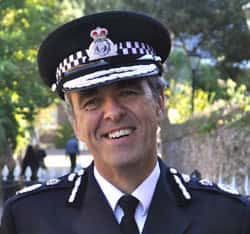Visit the Devon & Cornwall Police website www.devon-cornwall.police.uk
Join us
Change the story
Do you want to change
the world?
Do you think differently? Can you work with others to create new solutions to long term societal problems? Can you bring communities together? Do you want a meaningful career that improves the lives of those around you?
If you’re looking to make a real difference, our award-winning, salaried two-year national graduate programmes offer a unique opportunity to transform communities while developing leadership skills for life. Police Now offer a structured route into policing with all the personal support and leadership development you’ll need to create positive change in the world around you.
Join us. Change the story.

Every
Street corner
Park bench
Home
Everyone deserves to feel safe in the place they live.
Applications are now open for our 2024 National Graduate Leadership Programme.
question everything,
become a detective
Applications will open soon for our 2025 National Detective Programme.
Our programmes
Police Now offer two national graduate programmes. Which one is right for you?
Police Now’s mission is to transform communities, reduce crime and anti-social behaviour, and increase the public’s confidence in the police service by recruiting, developing and inspiring outstanding and diverse individuals to be leaders in society and on the policing frontline.


IMPACT REPORT
2022/23
Police Now is uniquely positioned to support policing in four core areas:


